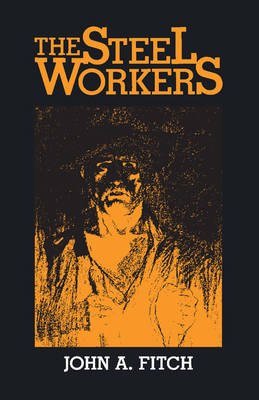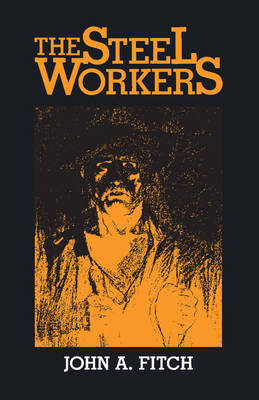
Bedankt voor het vertrouwen het afgelopen jaar! Om jou te bedanken bieden we GRATIS verzending (in België) aan op alles gedurende de hele maand januari.
- Afhalen na 1 uur in een winkel met voorraad
- In januari gratis thuislevering in België
- Ruim aanbod met 7 miljoen producten
Bedankt voor het vertrouwen het afgelopen jaar! Om jou te bedanken bieden we GRATIS verzending (in België) aan op alles gedurende de hele maand januari.
- Afhalen na 1 uur in een winkel met voorraad
- In januari gratis thuislevering in België
- Ruim aanbod met 7 miljoen producten
Zoeken
Omschrijving
This classic account of the worker in the steel industry during the early years of the twentieth century combines the social investigator's mastery of facts with the vivid personal touch of the journalist. From its pages emerges a finely etched picture of how men lived and worked in steel. In 1907-1908, when John Fitch spent more than a year in Pittsburgh interviewing workers, steel was the master industry of the region. It employed almost 80,000 workers and virtually controlled social and civic life. Fitch observed steel workers on the job, and he describes succinctly the prevailing technology of iron and steelmaking: the blast furnace crews, the puddlers and rollers; the crucible, Bessemer, and open hearth processes. He examined the health problems and accidents which resulted from the pressure of long hours, hazardous machinery, and speed-ups in production. He also anaylzed the early experiments in welfare capitolism, such as accident prevention and compensation, and pensions. One of the six volumes in the famous Pittsburgh Survey (1909-1914), The Steel Workers remains a readable and timeless account of labor conditions in the early years of the steel industry. An introduction by the noted historian Roy Lubove places the book in political and historical context and makes it especially suitable for classroom use.
Specificaties
Betrokkenen
- Auteur(s):
- Uitgeverij:
Inhoud
- Aantal bladzijden:
- 432
- Taal:
- Engels
- Reeks:
Eigenschappen
- Productcode (EAN):
- 9780822960911
- Verschijningsdatum:
- 12/09/2002
- Uitvoering:
- Paperback
- Formaat:
- Trade paperback (VS)
- Afmetingen:
- 137 mm x 216 mm
- Gewicht:
- 539 g

Alleen bij Standaard Boekhandel
+ 198 punten op je klantenkaart van Standaard Boekhandel
Beoordelingen
We publiceren alleen reviews die voldoen aan de voorwaarden voor reviews. Bekijk onze voorwaarden voor reviews.









